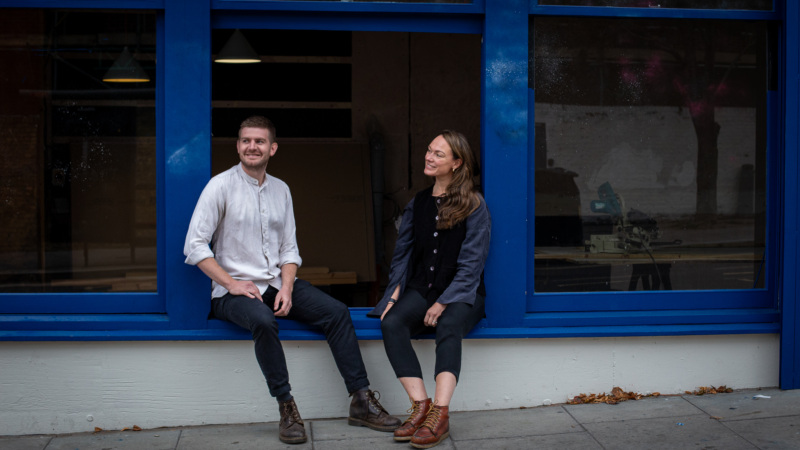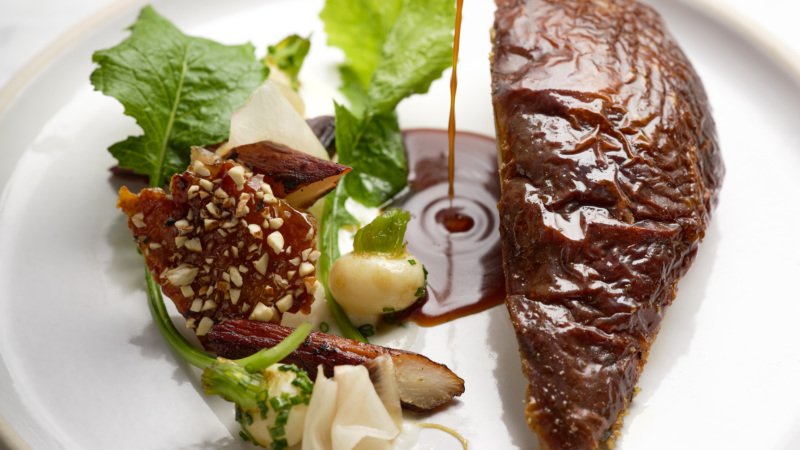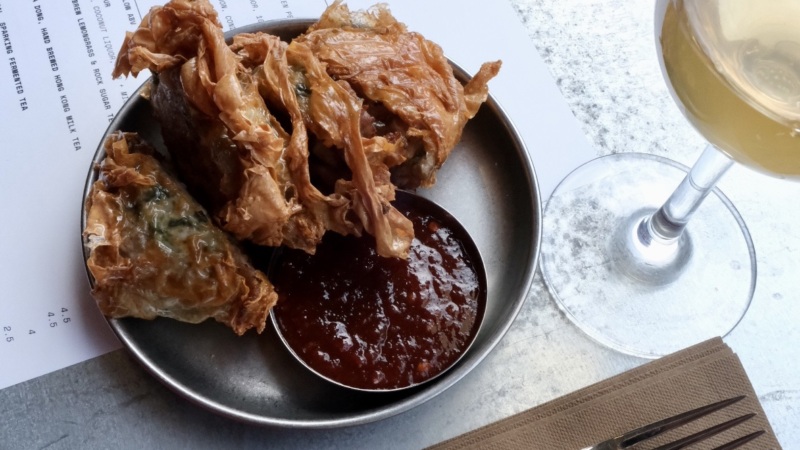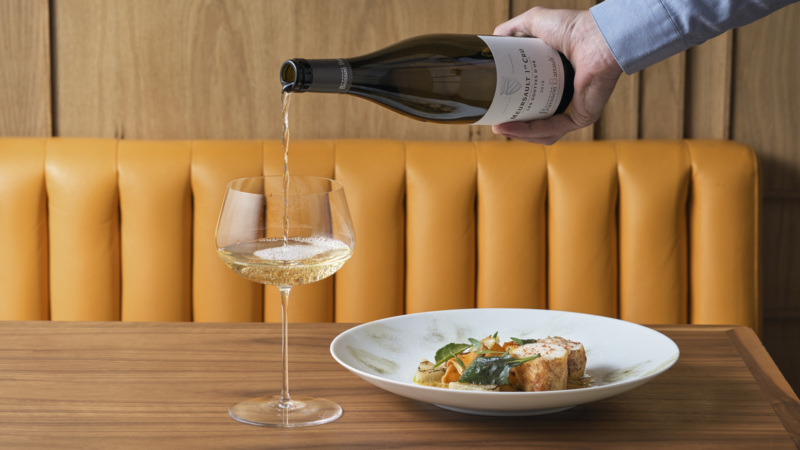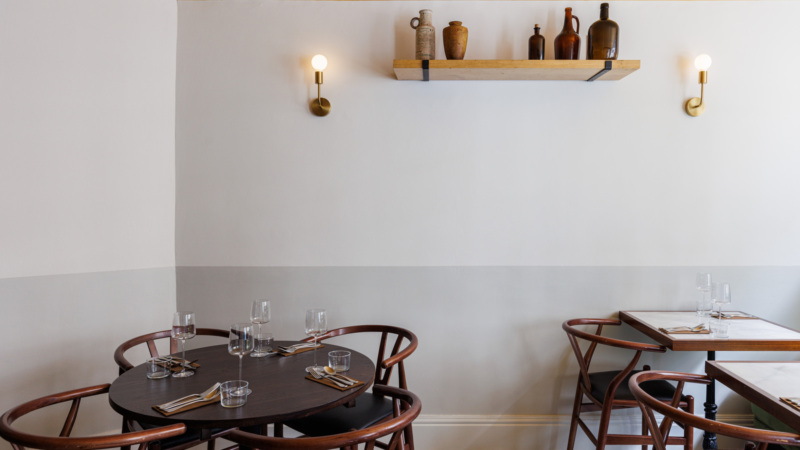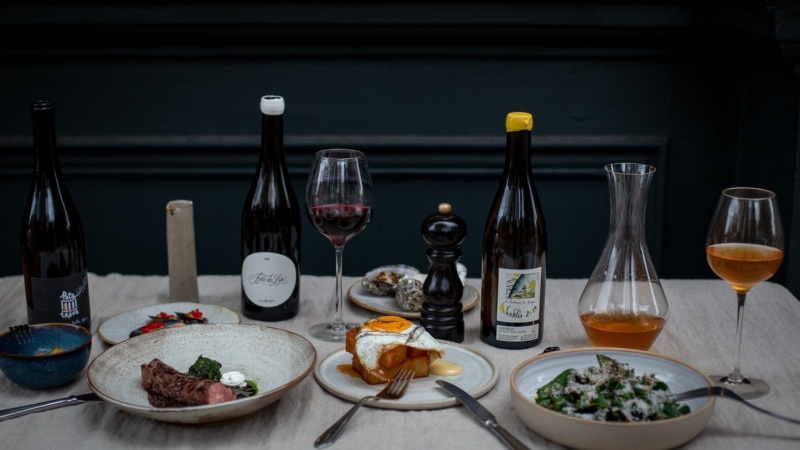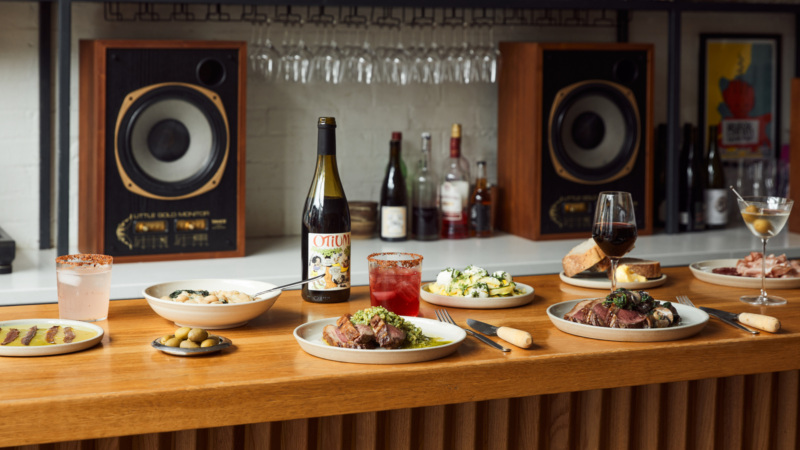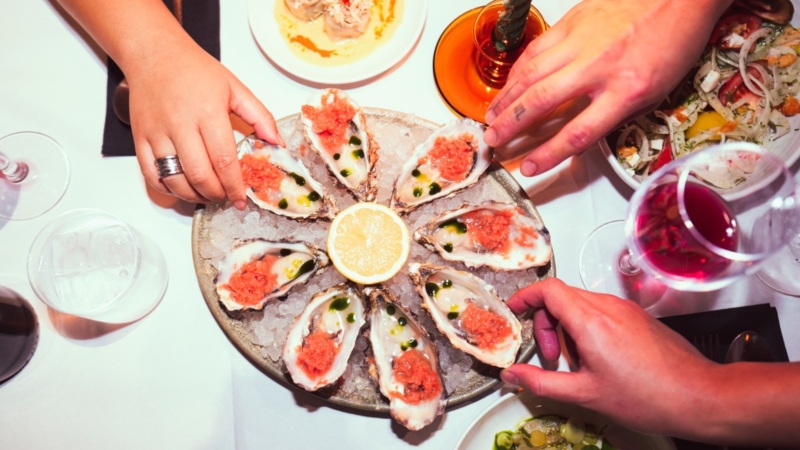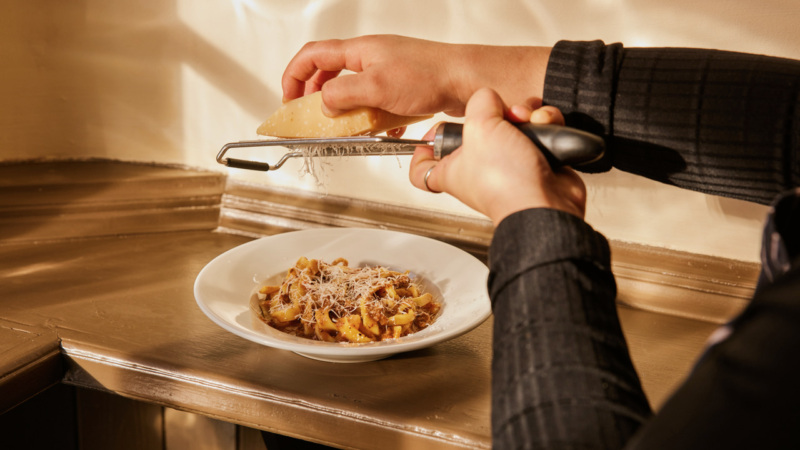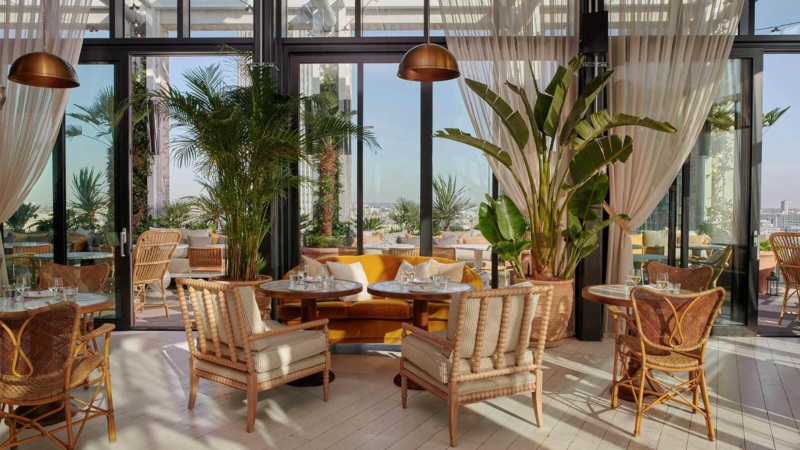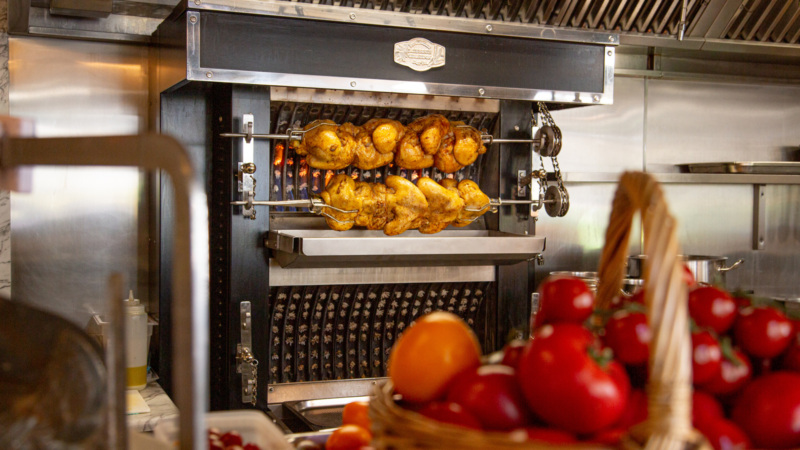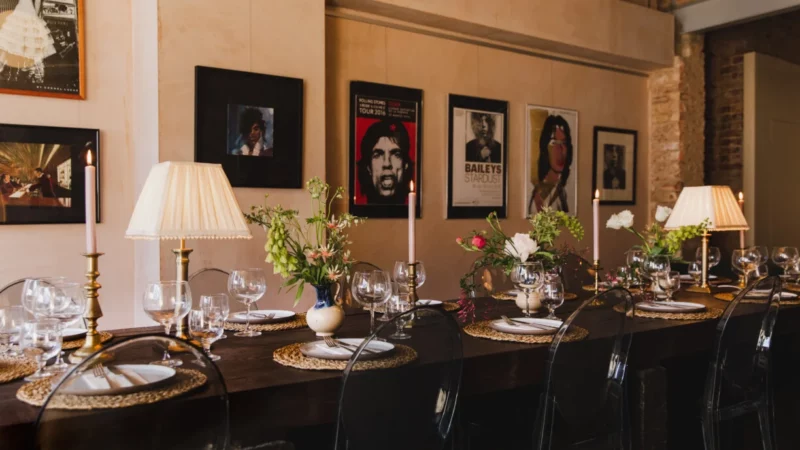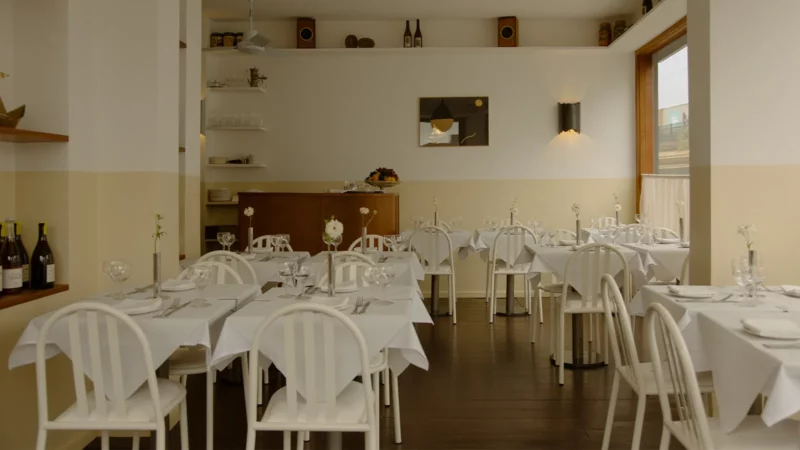
The Art of Hospitality: Rethinking Front of House with Stem’s Emma Underwood
Stem is a calm restaurant, set just behind Oxford Circus across the ground and basement floors of a townhouse. Clean lines, aubergine banquettes, marble tables and the odd copper furnishing—although very much a modern London setting, the feeling of home from the building permeates into the space. This is helped along by the staff, of course.
Helmed by General Manager Emma Underwood, the unpretentious calm of Stem relaxes you into the dining experience. “I’ve spent a lot of time thinking about what my definition of hospitality [and the restaurant experience] is” Underwood explains. “It is about generosity and accessibility. Guests should be able to define their own experience. The most important thing is the person sitting opposite them. We’re there to enhance that.”
Originally from an academic background, Underwood is rigorous in her thinking; she wants to ensure that everything is done for a reason, is carefully thought through and planned. She’s particular with her words but also passionate and practical about the industry she’s in. It is hard not to be swept up in her enthusiasm to be better tomorrow than you are today.
This is Underwood’s first London restaurant, having previously worked in northern England. She grew up in North Wales, by Chester “which is why I don’t have a Welsh accent, but I am fluent in Welsh—which is a pretty cool party trick”. From the age of 15, Underwood has worked part time in cafés, restaurants and bars whilst studying. When doing her PhD in Manchester she worked part-time at chef and restaurateur Gary Usher’s first restaurant, Sticky Walnut. Usher remains a close mentor and inspiration for her. “There are so many people that I admire in this industry, it’s full of the most creative, passionate and selfless people,” she says. “[Usher] taught me how to be generous and hospitable while still maintaining the highest of standards.”

Her PhD looked at the role of women in far-left wing British political movements, and informs her approach today. She examined the intersection of anarchist history and feminist politics, explaining that “the philosophy of anarchism is far from the meaning of chaos, and can further be applied to other sectors of society. It is not just about getting rid of those in charge, it is about rethinking boundaries and structures,” she articulates. “If the image of ‘woman’ can be reconsidered without the centuries of structures applied to it, if women can be judged without the expectations that society have placed onto them, then we can have a truly equal society.”
This constant re-thinking of structure is how Underwood approaches hospitality, keeping the guest, the food, the wine at the centre but always refining how best to create a sense of purpose, business and hospitality. She still has an amazing collection of original Catcall feminist ‘zines from the 70s and 80s from her research that still feel relevant today.
But, although she felt passionate about the work and research, academia was shifting and she was offered the Assistant Manager role at Sticky Walnut, which she accepted—the restaurant world had captured her. “The passion from people in this industry is amazing. You don’t do this job for the money, you do it for the passion.” From there she opened Usher’s second site, Burnt Truffle in Wirral.
After Burnt Truffle, Underwood took on the GM role at Where The Light Gets In, an acclaimed experimental restaurant in Stockport just outside of Manchester. “I handed in my CV still drunk, before I had finished dinner” Underwood said. She wasn’t there for a job, just for dinner, but the sense of connection between food, wine, guests and staff wowed her. The ethos of the restaurant is about no barriers; with the kitchen in the middle of the room, the space is one that is completely shared.
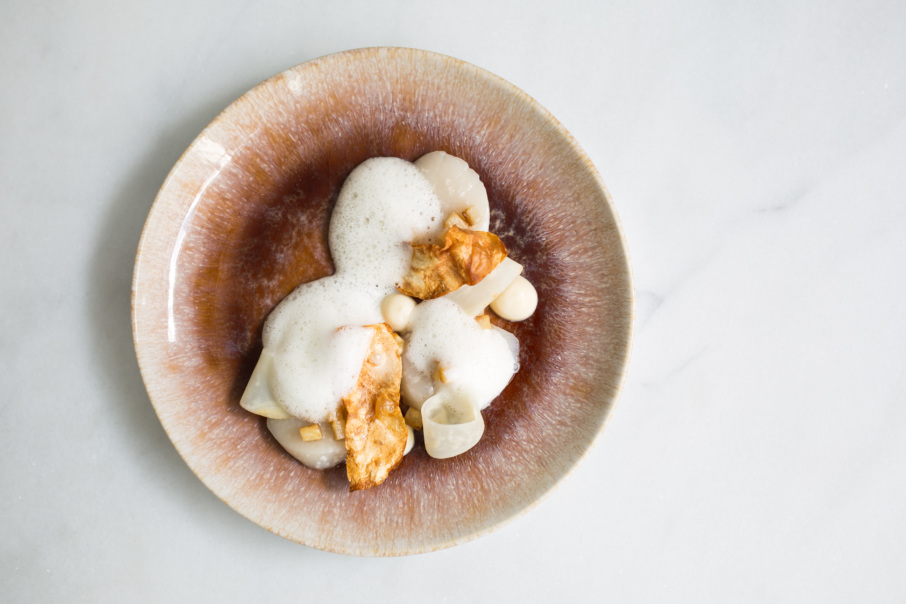
Underwood’s decision to move to London was about the variety of restaurants, the accessibility of dining and the challenge of being in the heart of a big and busy city. She chose Stem because she felt that the space could encapsulate her definition of hospitality. Here, Head Chef Sam Ashton-Booth works alongside her to deliver this.
She is incredibly aware of the privilege that comes with restaurants and wants hospitality, as a career and as an experience, to be something that everyone can enjoy. “Food is something everyone can relate to, but eating in restaurants isn’t” Underwood explains, in discussing how to break down those barriers—and part of that is seeing Front of House (and the industry as a whole) with professionalism and value.
“In this country we still don’t see it as a viable career. I want people to know that it is something that has scope for progression and wonderful rewards. You meet the most amazing people in the industry. It is something you can be proud of.” The role of a chef is much more understood, and from television to Instagram, the chef’s work is showcased and marveled at. Meanwhile, Front of House and the art of hospitality is often overlooked.
In the last few years, Underwood has been a vocal advocate for promoting the Front of House career path, speaking across social media, on panels and writing for industry publications about how best to amplify the profession. The purpose of this is to demystify the role and to simply raise awareness and create discussion. She is one of the partners of the TMRW project, an initiative to support those beginning their careers in hospitality through networking and mentorship.
“People don’t understand that you are able to work your way up in this industry, and sometimes quite quickly. There is huge scope for learning—about wine and food, but also business and managerial skills. You learn about people and how to manage teams. It is an incredibly multifaceted job,” Underwood explains. She feels that although people can understand that it is a career path driven by passion, they don’t realise it can also be a financially viable career.

For Underwood, seeing her team grow is a highlight; she loves working out what different strengths each of them have, and working with them to develop those talents. To her, it’s important to know that her chef de partie has a new kitten and how long it takes for someone to get home each night. The details are what help her work out how to build a strong team. The job is a balancing act, and one about relationships: “you have to be able to read people quickly, know the right eye contact to give, how to move your body through space, give the right smile to the right person at the right time. You need to know how to sign off each email—everyone is different and you need to treat them as such” Underwood explains.
She’s positive about the future of restaurants, but she is also wary. Technology has been a double-edged sword—it helps to manage systems, but it can make people lazy. “The role of the maître d’ has changed,” she says, “as all the notes are on the system and you don’t need to remember guests”. But equally, technology can make service smoother, freeing the team up to focus on other matters and to manage turn times on the different menus, allowing the restaurant several extra covers “which can [financially] make or break a night”.
One of Underwood’s favourite restaurants is Perilla in Newington Green, as she believes it has a similarly progressive approach to Where The Light Gets In. “Their sourcing is immaculate and paired with a generous and open approach to hospitality. The most progressive restaurants don’t have to be doing anything particularly ground-breaking, they just have to have a thorough approach to their dining experience. Places that have a clear chain of thought to every element, when you can understand the reasoning behind choices from both front and back of house, and a clear synergy between them, they are the most special” Underwood elaborates.
The restaurant scene has changed, even within the last three years, and no doubt there are bigger shifts ahead. But Underwood thinks that the future lies with people, and in valuing relationships and skills. If restaurants invest in management and training, so that they are able to be tighter, sharper and clearer in what they do, that’s where success will lie.

